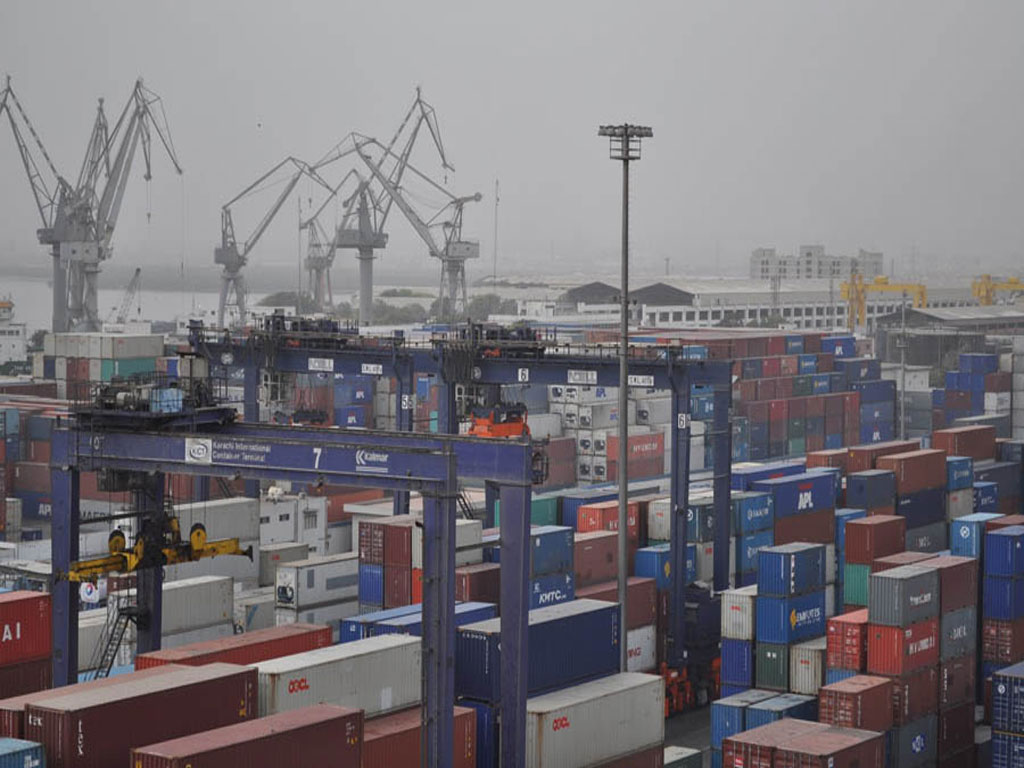 Yesterday, the IIC road of Karachi (Wall Street of Pakistan) was choked. The reason was nothing else but a sudden hike in load on Karachi Port. There was a strike of transporters which was ended yesterday, and overload exposed the thin port infrastructure.
Yesterday, the IIC road of Karachi (Wall Street of Pakistan) was choked. The reason was nothing else but a sudden hike in load on Karachi Port. There was a strike of transporters which was ended yesterday, and overload exposed the thin port infrastructure.
There is an emphasis at SBP on following a Vietnam model of exports for Pakistan by becoming part of the Global Value Chains (GVCs). For that, flow of goods in and out of the country ought to be smooth. That is not the case. Pakistan annual trade value is less than one sixth of Vietnam. From a naked eye, the load on two ports in Karachi seems to be higher than of any port at Vietnam or many other exporting economies.
The other bottleneck to enhance trade competitiveness is inefficient inland transport system. There is an old joke that shipment cost of coal from Indonesia to Karachi is half of what is to transport from Karachi to Lahore. This tells about the inefficiencies of the transportation system within the country.
The over reliance on trucks and tankers on road is generally not the case in many other economies. Pakistan is an exception. Railways are usually the option of inland goods transportation world over. However, since 1980s, after the formation of NLC, the goods transportation in Pakistan shifted to roads. The railway system best operates by subsidizing passengers transport on income from freight carriage. With decline in freight transports, railway system deteriorated in the country.
One of the main reasons for poor competitiveness in the country is its poor port and inland transport infrastructure. There is dire need to upgrade the existing ports and to have new ports as well. There is a feasibility of building a cargo village in Karachi catching dust for 15-20 years. Nothing has happened to date. At this stage, the sea port load in Pakistan is relaying on Karachi Port and Port Qasim with higher load on the former.
Karachi port is now well within the city. Cargo yards can be seen from a modern glass building of a leading financial house. Karachi traffic mayhem is not only due to rising population, but also due higher number of oil and water tankers.
There is dire need of investment in rail and sea port infrastructure. It’s a prerequisite for attaining competitiveness. Without it becoming part of GVCs is a pipedream. The dividend from CPEC and other infrastructure expansions is limited as the chock point is the port. The road access to the Karachi Port is thin, and the area is too congested. There are informal settlements around limiting the ability to expand Karachi Port Qasim further. God forbid, one accident at port Qasim can halt the energy supply up north.
























Comments
Comments are closed.